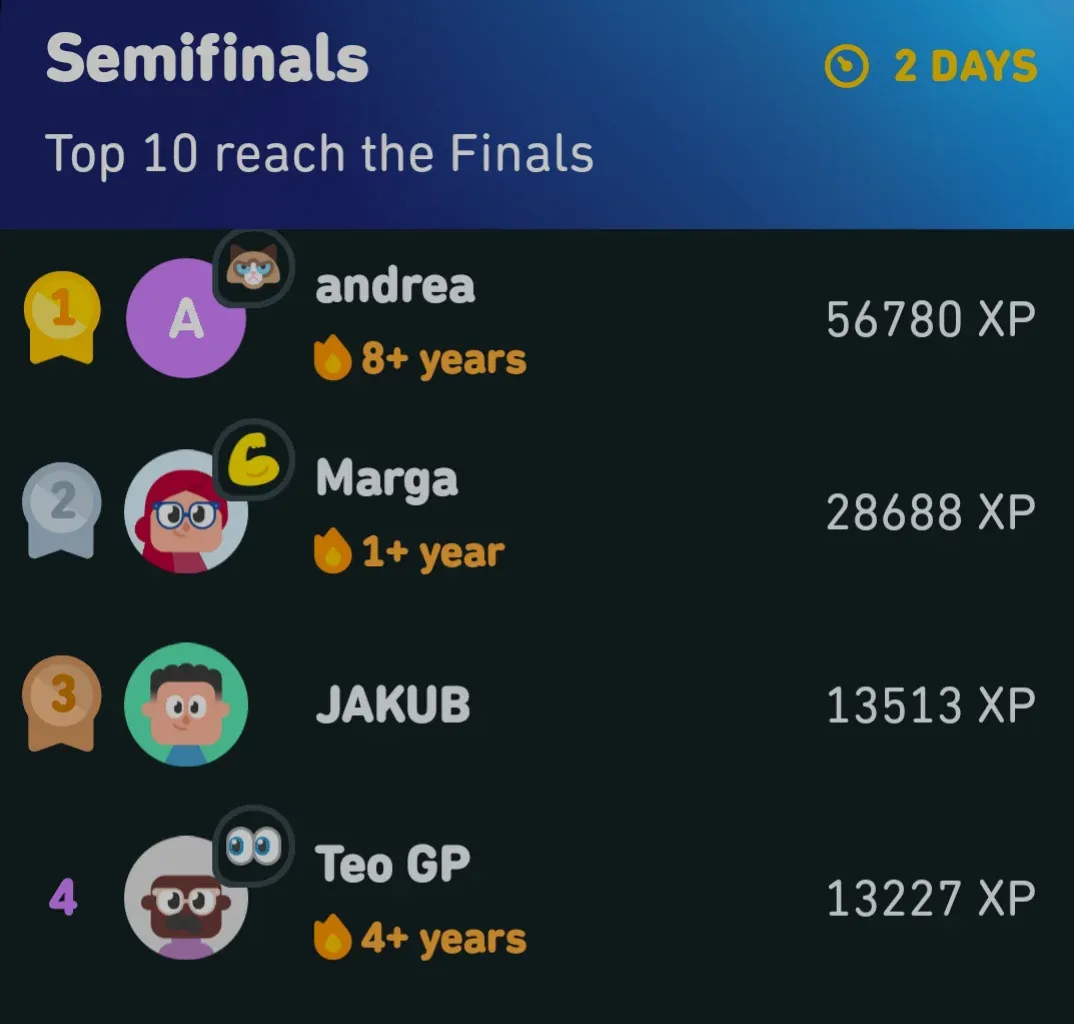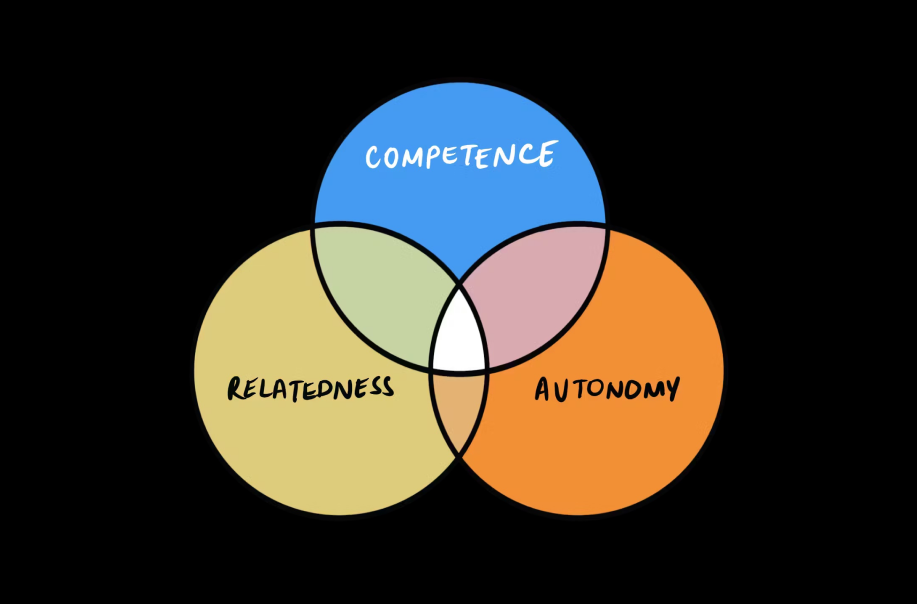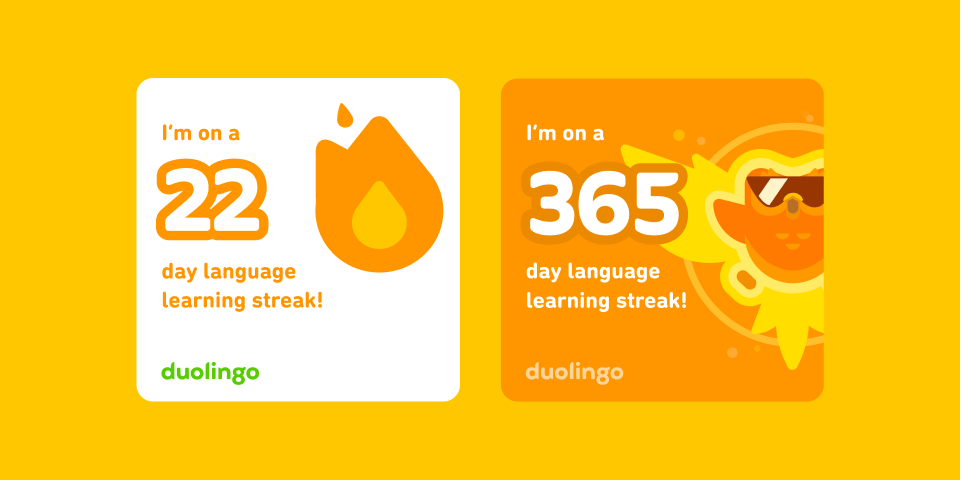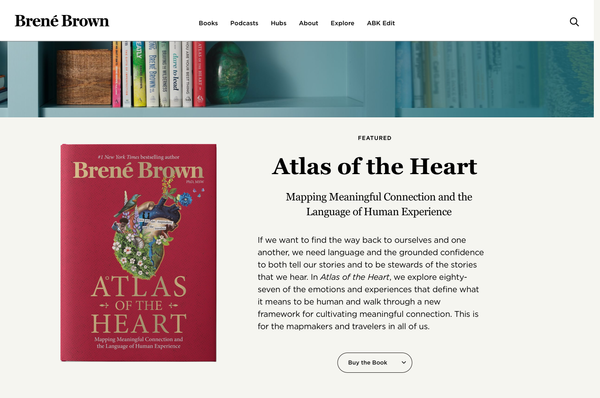Duolingo: The Use of Rewards as Motivators and Their Impacts

Summary: Rewards like points and leagues can boost motivation during the early stages of language learning. However, over time, they may shift the user’s focus from learning to chasing rewards, potentially compromising learning quality and undermining intrinsic motivation.
How Duolingo Hooks Us
Duolingo uses a variety of external rewards to engage and motivate learners. As I've outlined in my previous article, features like points, leagues, streaks, friend quests, and monthly challenges tap into loss aversion, the sunk cost fallacy, our innate desire for status to keep us coming back to the app.
As a Duolingo user for 6 months (and counting), I've got a good amount of experience with its gamified mechanics and their effects on motivation and the learning process. In this article, I’ll explore these impacts through the lens of Self-Determination Theory (SDT).
A Quick Dive into Self-Determination Theory
Self-Determination Theory (SDT) is a psychological framework developed by Edward Deci and Richard Ryan that focuses on what drives human motivation and well-being.
SDT identifies two main types of motivation:
- Intrinsic Motivation: The drive to do something because it’s inherently enjoyable or meaningful.
- Extrinsic Motivation: The drive to act due to external rewards or pressures.

SDT also highlights three key psychological needs for fostering intrinsic motivation:
- Autonomy: Feeling in control of your own behaviors and decisions
- Competence: Feeling effective and capable in what you do.
- Relatedness: Feeling connected and valued by others.
The Upsides of Using Rewards
External rewards aren’t inherently bad—they can be very useful and motivating in certain contexts.
- For tasks that are straightforward, repetitive, or don’t necessarily require a lot of creativity, external rewards can be effective.
- They can also be helpful in situations where someone is new to a task and needs some extra encouragement to get started, even if they don’t yet feel intrinsically motivated.
In the early days of using Duolingo, external rewards like streaks, leagues, and gems can be very helpful for building habits and keeping motivation high.
- When you’re just starting out, the learning curve can feel steep, and progress might seem slow. Without enough competence, learners might not yet experience the satisfaction of understanding or using the language effectively.
- Rewards like points, badges, and streaks provide small, frequent feedback loops that give users a sense of progress and achievements.
- Once people develop a routine and start seeing the benefits of the skill—like being able to understand a few phrases or communicate in basic ways—their intrinsic motivation often grows. At that point, the activity itself starts to feel more rewarding, and they may need less external motivation to keep going.
The Downsides of Using Rewards
Rewards Overshadow the Learning Itself
I think the main downside of using external rewards to motivate people is that they can shift the focus away from genuine interest in the activity to gaining the rewards. This undermines intrinsic motivation—the joy of doing something for its own sake.
In the case of Duolingo, users may find themselves focusing on streaks or climbing league ranks over the actual process of learning and mastering a language. This can drive users to "game the system"—using shortcuts or strategies to maximize points without engaging meaningfully with the material.


Lower Retention
The problem is made worse by Duolingo’s instructional design. Duolingo frequently repeats the exact same questions while also provides too many hints for users. If users are too focused on maximizing points, they can quite easily speed through lessons without engaging in the cognitive effort needed to recall and retain words. The result? High scores, low retention, and study time that’s not as meaningful as it could be.
This question asks learners to match characters to its pronunciation (pinyin). However, the audio prompts make it too easy to guess the correct answers even though I have not memorized the character yet 🥴.
Why Rewards May Not Be Sustainable
I don't think rewards like league system in Duolingo will be sustainable in the long run. Here are why:
- Competence Plateau: Duolingo is a great supplementary tool, but it alone is not sufficient for mastering a language. Over time, learners may realize that focusing on earning points and advancing in leagues doesn’t necessarily mean real progress. Without a sense of meaningful improvement, the rewards lose their appeal, and users may disengage.
- Burnout and Pressure: Competing in leagues can shift from being fun to feeling like a burden. Users who feel pressured to avoid demotion or maintain streaks may experience stress or burnout, which further undermines their intrinsic motivation.
- Habituation: The novelty of external rewards fades over time. As users become less excited about streaks or leaderboards—especially if they don’t see personal value in the system—they’re more likely to abandon it.
Rethinking Motivation: Ideas for a Better Duolingo
The external reward systems in Duolingo are useful to a certain point, but I would like to see the app incorporate more features that promote intrinsic motivation rather than relying heavily on rewards.
Here are a few ideas:
- Adjustable difficulty: Allow users to customize the amount of hints shown in questions. Hints can be incredibly helpful for beginners, but for more advanced learners, the difficulty is needed to encourage cognitive engagement. Also, whenever you provide someone with a meaningful choice, you're promoting autonomy and thus their intrinsic motivation.
- Focus on mastery instead of status and competition.
- Progress Visualization: Replace points and league rankings with tools that highlight meaningful progress, such as tracking vocabulary growth, improvements in fluency, or proficiency in grammar.
- Creative Challenges: Introduce optional tasks that encourage users to actively apply the language in real-world contexts. For example: Writing a short poem or story, translating a song, reading and summarizing a news article...
- Competence-Based Rewards: Instead of rewarding for #points (or time spent on the app), reward them for real achievements, such as mastering a grammar rule or completing a challenging reading task.



